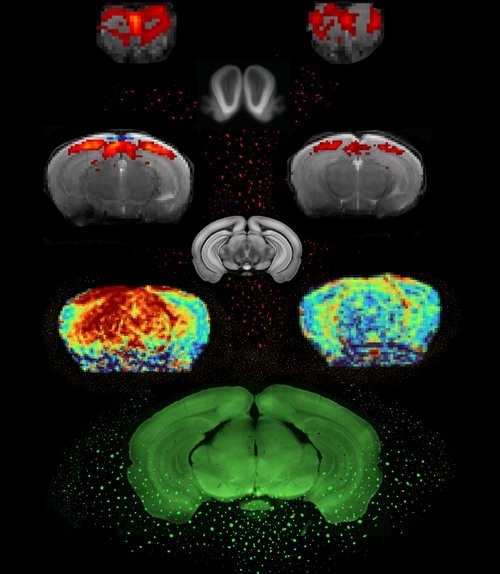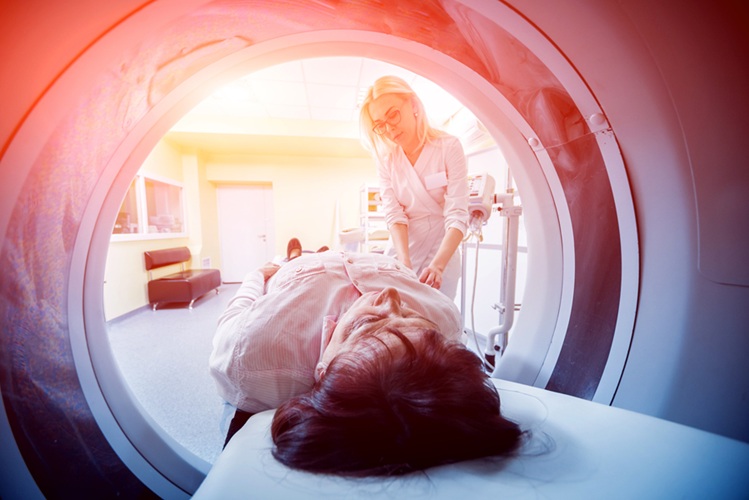GE to Acquire Abbott Labs' In Vitro, Point-Of-Care Diagnostics Businesses
|
By MedImaging staff writers Posted on 02 Feb 2007 |
GE Healthcare (Chalfont St. Giles, UK) and Abbott Laboratories (Abbott Park, IL, USA), a global leader in medical diagnostic instruments and tests, have entered into a definitive agreement for GE to acquire Abbott's primary in vitro diagnostics businesses and Abbott point-of-care (POC) diagnostics business (formerly known as i-Stat) for US$8.13 billion in cash.
Abbott's molecular diagnostics and diabetes care businesses are not part of the transaction and will remain part of Abbott. The addition of two of Abbott's core laboratory diagnostics businesses will broaden GE Healthcare's range of diagnostic products. Abbott's in vitro diagnostic (in vitro diagnostics test blood or urine samples to diagnose disease or other conditions) complement GE's existing positions in in vivo diagnostic imaging systems (in vivo imaging uses x-ray, magnetic resonance, ultrasound, or other imaging procedures to diagnose disease), as well as its molecular imaging, information technology, and patient monitoring capabilities across the complete healthcare continuum.
The transaction, which is subject to regulatory approvals and other customary conditions, has been approved by the boards of directors of Abbott and GE and is targeted to close in the first half of 2007.
The acquisition reflects GE Healthcare's strategy to combine early diagnosis with information technology to enable a new "early health” model of care focused on earlier diagnosis, pre-symptomatic disease detection and disease prevention.
Abbott's in vitro diagnostics business is an international leader with a strong tradition of developing first-of-a-kind products that have helped create the modern diagnostics industry. Abbott is a world leader in immunoassays and blood screening. Abbott's broad range of medical tests and diagnostic instrument systems are used worldwide by hospitals, laboratories, blood banks, and physician offices to diagnose and monitor diseases such as HIV, hepatitis, cancer, heart failure, and metabolic disorders, as well as assess other important indicators of general health.
Abbott Point-of-Care manufactures diagnostic products for blood analysis to provide health care professionals critical diagnostics information accurately and immediately at the point of patient care. In addition to its excellent product range in the blood gas and chemistries segment, Abbott also provides point-of-care cardiac assays to the emergency room.
Abbott's in vitro diagnostics business, including point-of-care, is expected to generate net sales of approximately $2.7 billion in 2006. For Abbott, the transaction is expected to be neutral to earnings-per-share in 2007 before specified items and accretive thereafter. GE said the transaction will be accretive to earnings.
Related Links:
GE Healthcare
Abbott Laboratories
Abbott's molecular diagnostics and diabetes care businesses are not part of the transaction and will remain part of Abbott. The addition of two of Abbott's core laboratory diagnostics businesses will broaden GE Healthcare's range of diagnostic products. Abbott's in vitro diagnostic (in vitro diagnostics test blood or urine samples to diagnose disease or other conditions) complement GE's existing positions in in vivo diagnostic imaging systems (in vivo imaging uses x-ray, magnetic resonance, ultrasound, or other imaging procedures to diagnose disease), as well as its molecular imaging, information technology, and patient monitoring capabilities across the complete healthcare continuum.
The transaction, which is subject to regulatory approvals and other customary conditions, has been approved by the boards of directors of Abbott and GE and is targeted to close in the first half of 2007.
The acquisition reflects GE Healthcare's strategy to combine early diagnosis with information technology to enable a new "early health” model of care focused on earlier diagnosis, pre-symptomatic disease detection and disease prevention.
Abbott's in vitro diagnostics business is an international leader with a strong tradition of developing first-of-a-kind products that have helped create the modern diagnostics industry. Abbott is a world leader in immunoassays and blood screening. Abbott's broad range of medical tests and diagnostic instrument systems are used worldwide by hospitals, laboratories, blood banks, and physician offices to diagnose and monitor diseases such as HIV, hepatitis, cancer, heart failure, and metabolic disorders, as well as assess other important indicators of general health.
Abbott Point-of-Care manufactures diagnostic products for blood analysis to provide health care professionals critical diagnostics information accurately and immediately at the point of patient care. In addition to its excellent product range in the blood gas and chemistries segment, Abbott also provides point-of-care cardiac assays to the emergency room.
Abbott's in vitro diagnostics business, including point-of-care, is expected to generate net sales of approximately $2.7 billion in 2006. For Abbott, the transaction is expected to be neutral to earnings-per-share in 2007 before specified items and accretive thereafter. GE said the transaction will be accretive to earnings.
Related Links:
GE Healthcare
Abbott Laboratories
Latest Industry News News
- GE HealthCare and NVIDIA Collaboration to Reimagine Diagnostic Imaging
- Patient-Specific 3D-Printed Phantoms Transform CT Imaging
- Siemens and Sectra Collaborate on Enhancing Radiology Workflows
- Bracco Diagnostics and ColoWatch Partner to Expand Availability CRC Screening Tests Using Virtual Colonoscopy
- Mindray Partners with TeleRay to Streamline Ultrasound Delivery
- Philips and Medtronic Partner on Stroke Care
- Siemens and Medtronic Enter into Global Partnership for Advancing Spine Care Imaging Technologies
- RSNA 2024 Technical Exhibits to Showcase Latest Advances in Radiology
- Bracco Collaborates with Arrayus on Microbubble-Assisted Focused Ultrasound Therapy for Pancreatic Cancer
- Innovative Collaboration to Enhance Ischemic Stroke Detection and Elevate Standards in Diagnostic Imaging
- RSNA 2024 Registration Opens
- Microsoft collaborates with Leading Academic Medical Systems to Advance AI in Medical Imaging
- GE HealthCare Acquires Intelligent Ultrasound Group’s Clinical Artificial Intelligence Business
- Bayer and Rad AI Collaborate on Expanding Use of Cutting Edge AI Radiology Operational Solutions
- Polish Med-Tech Company BrainScan to Expand Extensively into Foreign Markets
- Hologic Acquires UK-Based Breast Surgical Guidance Company Endomagnetics Ltd.
Channels
Radiography
view channel
Machine Learning Algorithm Identifies Cardiovascular Risk from Routine Bone Density Scans
A new study published in the Journal of Bone and Mineral Research reveals that an automated machine learning program can predict the risk of cardiovascular events and falls or fractures by analyzing bone... Read more
AI Improves Early Detection of Interval Breast Cancers
Interval breast cancers, which occur between routine screenings, are easier to treat when detected earlier. Early detection can reduce the need for aggressive treatments and improve the chances of better outcomes.... Read more
World's Largest Class Single Crystal Diamond Radiation Detector Opens New Possibilities for Diagnostic Imaging
Diamonds possess ideal physical properties for radiation detection, such as exceptional thermal and chemical stability along with a quick response time. Made of carbon with an atomic number of six, diamonds... Read moreMRI
view channel
Simple Brain Scan Diagnoses Parkinson's Disease Years Before It Becomes Untreatable
Parkinson's disease (PD) remains a challenging condition to treat, with no known cure. Though therapies have improved over time, and ongoing research focuses on methods to slow or alter the disease’s progression,... Read more
Cutting-Edge MRI Technology to Revolutionize Diagnosis of Common Heart Problem
Aortic stenosis is a common and potentially life-threatening heart condition. It occurs when the aortic valve, which regulates blood flow from the heart to the rest of the body, becomes stiff and narrow.... Read moreUltrasound
view channel
New Incision-Free Technique Halts Growth of Debilitating Brain Lesions
Cerebral cavernous malformations (CCMs), also known as cavernomas, are abnormal clusters of blood vessels that can grow in the brain, spinal cord, or other parts of the body. While most cases remain asymptomatic,... Read more.jpeg)
AI-Powered Lung Ultrasound Outperforms Human Experts in Tuberculosis Diagnosis
Despite global declines in tuberculosis (TB) rates in previous years, the incidence of TB rose by 4.6% from 2020 to 2023. Early screening and rapid diagnosis are essential elements of the World Health... Read moreNuclear Medicine
view channel
Novel Radiolabeled Antibody Improves Diagnosis and Treatment of Solid Tumors
Interleukin-13 receptor α-2 (IL13Rα2) is a cell surface receptor commonly found in solid tumors such as glioblastoma, melanoma, and breast cancer. It is minimally expressed in normal tissues, making it... Read more
Novel PET Imaging Approach Offers Never-Before-Seen View of Neuroinflammation
COX-2, an enzyme that plays a key role in brain inflammation, can be significantly upregulated by inflammatory stimuli and neuroexcitation. Researchers suggest that COX-2 density in the brain could serve... Read moreGeneral/Advanced Imaging
view channel
First-Of-Its-Kind Wearable Device Offers Revolutionary Alternative to CT Scans
Currently, patients with conditions such as heart failure, pneumonia, or respiratory distress often require multiple imaging procedures that are intermittent, disruptive, and involve high levels of radiation.... Read more
AI-Based CT Scan Analysis Predicts Early-Stage Kidney Damage Due to Cancer Treatments
Radioligand therapy, a form of targeted nuclear medicine, has recently gained attention for its potential in treating specific types of tumors. However, one of the potential side effects of this therapy... Read moreImaging IT
view channel
New Google Cloud Medical Imaging Suite Makes Imaging Healthcare Data More Accessible
Medical imaging is a critical tool used to diagnose patients, and there are billions of medical images scanned globally each year. Imaging data accounts for about 90% of all healthcare data1 and, until... Read more






















